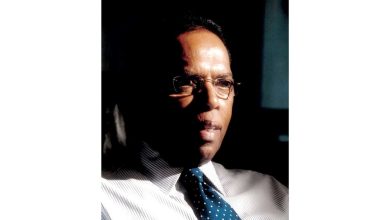THE WORLD BANK
Women Entrepreneurs Finance Initiative allocates first round funding; Expected to mobilize twice the original target
WASHINGTON, APRIL 19, 2018 – The Women Entrepreneurs Finance Initiative (We-Fi) today announced its first funding allocations — expected to mobilize over $1.6 billion in additional funds from an allocation of $120 million — for programs designed to knock down the unique barriers facing women entrepreneurs in developing countries. This initial round of grant allocations alone mobilizes twice the amount originally targeted for We-Fi over its lifetime.
The first round includes funding for proposals from the Islamic Development Bank to complement and expand successful initiatives in Yemen, Mali and Nigeria; the Asian Development Bank to improve the business environment for women in Sri Lanka; and the World Bank Group for global, regional and country specific activities to increase public and private sector support for women in business, with a focus on the poorest and most fragile environments.
We-Fi, which has received over $340 million from 14 governments, initially set out to mobilize $800 million in additional financing from the private sector, donors, governments and other development partners, but expected mobilization from today’s first round of allocations exceeds those expectations. In addition, fifty-eight percent of the first allocations will go to IDA countries or states affected by fragility, conflict or violence, putting We-Fi on track to exceed its commitment to devote half its portfolio to those areas.
“We know that everyone benefits when women have the resources they need to fully participate in economies and societies,” said World Bank Group President Jim Yong Kim. “By harnessing the public and private sector, We-Fi creates an unprecedented opportunity to maximize financing for women entrepreneurs in developing countries, so that they have a real and fair chance to start and run businesses, create wealth, share in prosperity, and achieve their highest aspirations.”
Some 70% of women who own small and medium-sized enterprises (SMEs) in the developing world currently can’t get the financing they need. They are either shut out of financial institutions, or can only get high-interest, short-term loans, resulting in a $1.5 trillion credit deficit for women entrepreneurs in emerging markets. Women also often lack access to the technologies, market connections, networks, and training necessary to build and maintain a successful business.
We-Fi, announced last July at the G-20 Summit in Hamburg, Germany, is an innovative, new facility that supports women-led businesses and works with governments to improve the laws and regulations stifling women entrepreneurs in developing countries.
“The response from stakeholders in both emerging and advanced markets has been enthusiastic and immediate, clearly demonstrating the urgent need to scale up efforts to help women entrepreneurs in developing countries,” said Priya Basu, head of the We-Fi Secretariat at the World Bank. “We-Fi fills a critically important gap; it’s the first significant fund committed to tackling the full range of barriers facing women entrepreneurs across the developing world.”
On Thursday, at its Spring Meetings, the World Bank Group will host a session on closing the digital economy gap facing women entrepreneurs.
We-Fi is supported by the governments of Australia, Canada, China, Denmark, Germany, Japan, the Netherlands, Norway, the Russian Federation, Saudi Arabia, Republic of South Korea, the United Arab Emirates, the United Kingdom, and the United States.
We-Fi was established as a Financial Intermediary Facility (FIF), which allows the international community to provide a direct and coordinated response to global priorities. FIF funds can be raised from multiple sources, both public and private, and are usually transferred to external agencies (e.g. United Nations or Multilateral Development Banks) to implement activities.
Under the first round of funding:
- The Asian Development Bank (ADB) was granted $12.6 million for a program on “Enabling an Empowering Business Environment for Women Entrepreneurs in Sri Lanka”. ADB’s program aims to improve the business environment for women-owned/led SMEs in Sri Lanka, build the capacity of women entrepreneurs, improve access to finance, and strengthen evidence and data. The program will contribute to reducing Sri Lanka’s gender credit gap, estimated at $350 million. ADB will work closely with national-level partners including 10 participating financial institutions, the Government of Sri Lanka, and local chambers of commerce.
- The Islamic Development Bank was granted $32 million for its “Business Resilience Assistance for Value-adding Enterprises for Women (BRAVE Women) program”. BRAVE Women will complement and expand existing successful initiatives in Yemen, Nigeria, and Mali. The BRAVE Women program aims to enhance the resilience of women-owned and -led SMEs in fragile contexts, recognizing their untapped economic potential. It will increase business growth opportunities for women entrepreneurs by boosting investment and providing capacity-building support.
- The World Bank Group was granted $75 million for its program “Creating Finance and Markets for All”, with $49 million allocated to the International Finance Corporation (IFC) to lead private-sector initiatives, and $26 million allocated to the World Bank to lead public-sector activities. Over half of the funds allocated to the World Bank Group will be dedicated to International Development Association (IDA) eligible countries and conflict affected states where women struggle most to grow their small and medium businesses, including countries like Bangladesh, Cote d’Ivoire, Mozambique, Nigeria, Pakistan, Senegal, Tanzania, and Zambia. The grant is expected to mobilize innovative private sector focused solutions, test and evaluate new approaches.





